The enduring myths about William Gocher, Manly Council and daylight bathing
Two of the most enduring myths about the history of Australian beach culture is that William Gocher paved the way for daylight bathing and that Manly Council became the first to overturn its ban on daylight bathing.
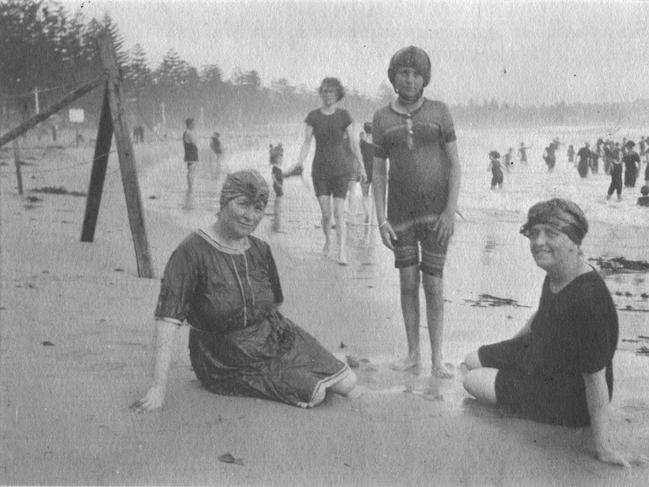
Manly
Don't miss out on the headlines from Manly. Followed categories will be added to My News.
Two of the most enduring myths about the history of Australian beach culture is that William Gocher almost single-handedly paved the way for daylight bathing and that Manly Council subsequently became the first to overturn its ban on daylight bathing.
According to the myths, Gocher convinced Manly Council to overturn its ban on daylight bathing, opening the way for a revolution on the beaches.
The truth is that daylight bathing was already a reality by the time Gocher staged a series of self-promoting stunts and his supposed role in legitimising daylight bathing was little more than a media beat-up several years after the event.
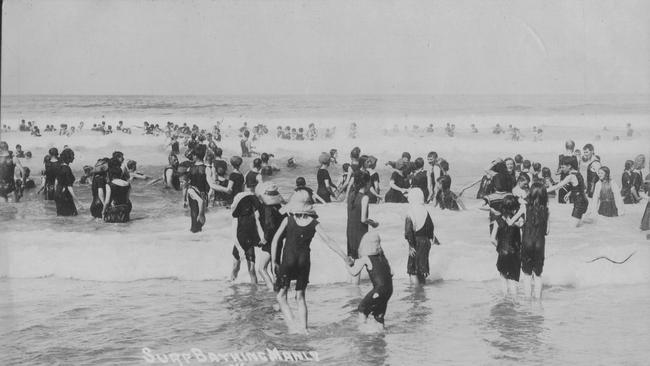
And when Manly Council overturned its ban on daylight bathing, it was simply playing Follow the Leader – the leader being Newcastle Council, which overturned its ban on daylight bathing in 1894, followed by Randwick Council, which overturned its ban on daylight bathing in 1902 – more than a year before Manly did.
Daylight bathing was first proscribed in 1833 in the Sydney Police Act, which banned it in and around Sydney Cove.
The ban spread to other parts of the state incorporated into municipalities in 1880 but by then Manly Council had already acted, having introduced a by-law in 1878 forbidding bathing in the surf between 7am and 8pm.
The by-laws only applied to those parts of the state incorporated into municipalities, such as Manly, not to all the beaches north of Manly lagoon, which were only incorporated when Warringah Council was formed in 1906.
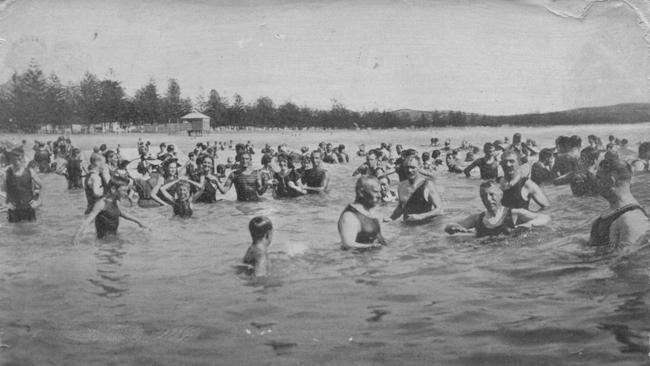
So anyone wishing to swim in the surf only had to go over the hill to Freshwater to escape Manly Council’s quaintly named Inspector of Nuisances.
Enter William Gocher, editor of the Manly and North Sydney News, a proponent of daylight bathing, a leading figure in the Manly Progress Association, a failed candidate for Manly Council, the State Government and the Federal Senate, and the author of several strongly anti-Semitic newspaper articles and pamphlets.
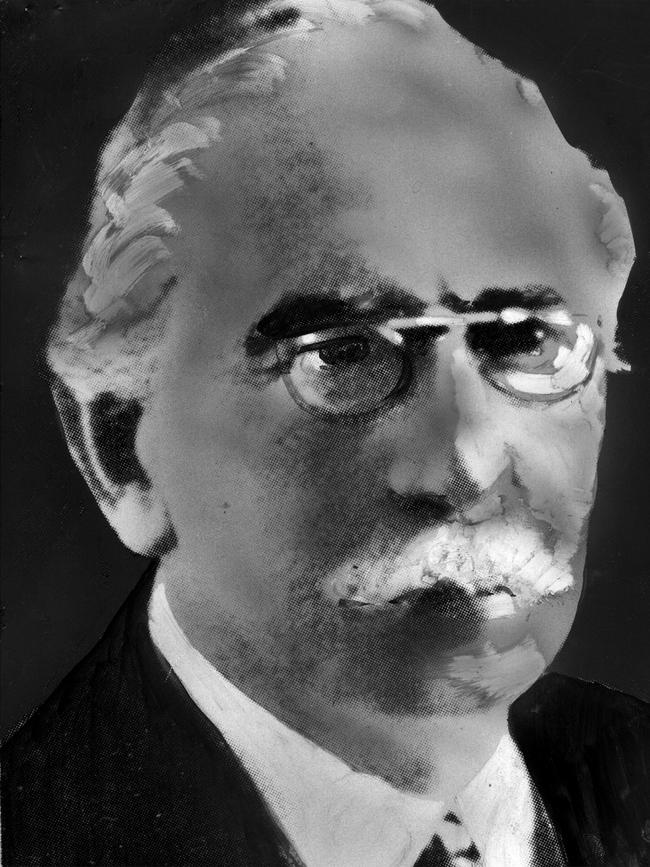
In late 1902 Gocher told his readers that he would defy the daylight bathing law in Manly and challenge the police to arrest him.
One day in late October, true to his word, Gocher entered the surf at Manly.
But nothing happened – the authorities didn’t show up and the few people in the area ignored him.
He repeated his stunt a week later but again was ignored.
Frustrated, Gocher then marched around to the Manly police station and told them what he had done, only to be met with disinterest.
The fact was that no one cared anymore because everyone had been flaunting the law for some time and the law had already been overturned by other councils by that time.
In early 1902 Sydney was in the grip of a drought and Randwick Council believed that allowing people to bathe in the surf would conserve water.
The council argued that, while the Water and Sewerage Board was asking people to be careful with the water supply and to forego plunge baths, the police on the other hand were interfering with people who went down to the sea to bathe.
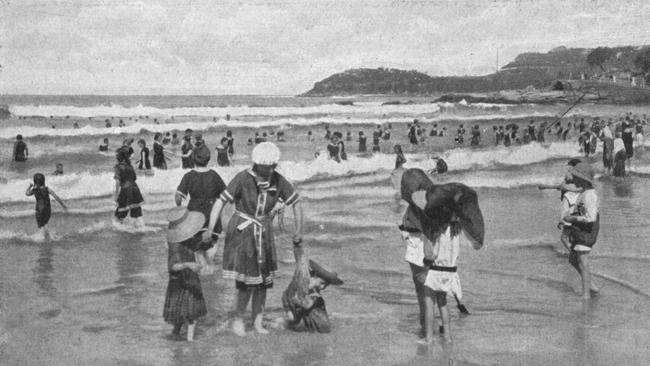
At its meeting on October 7, 1902, Randwick Council voted to overturn its ban on daylight bathing at its beaches and it was announced in the Government Gazette on December 2, 1902.
“It shall be lawful for all persons, whether male or female, to bathe in the sea at all times and at all hours of the day at those portions of the sea beach within the Municipality of Randwick duly set apart for such bathing, provided such persons desirous of bathing, being male or female, shall be clothed or covered from the neck and shoulders to the knees with a suitable bathing dress or costume; and all children above the age of 8 years, male or female, shall be so clothed to prevent exposure or indecency, such clothing or covering shall be approved of by the Council, or other persons appointed as caretaker or caretakers.”
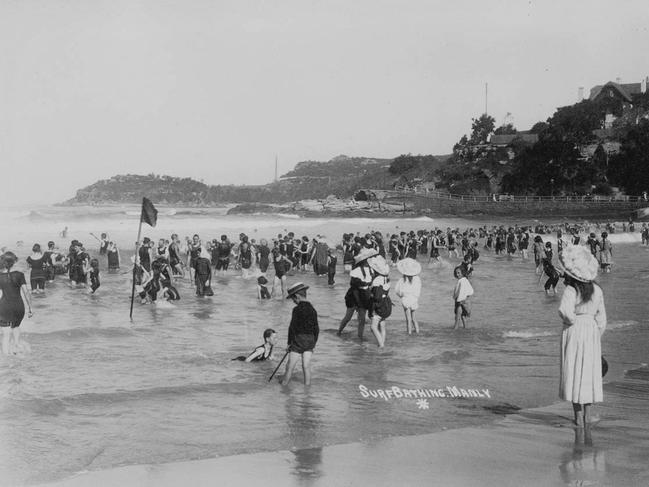
On the same day that the Government Gazette announced the new rules in play at Randwick and on the same page in the Gazette on that date, it was announced that Manly Council had slightly relaxed its ban on daylight bathing by allowing bathers to remain in the water until 7.30am – a generous 30 minutes more than previously allowed.
Obviously Gocher heard of the legalisation of daylight bathing by Randwick Council and subsequently launched his stunts at Manly.
It was no wonder the authorities and the populace at Manly ignored him.
But while Gocher was outspoken in his opposition to the ban on daylight bathing at Manly, he was only one of many to do so at public meetings.
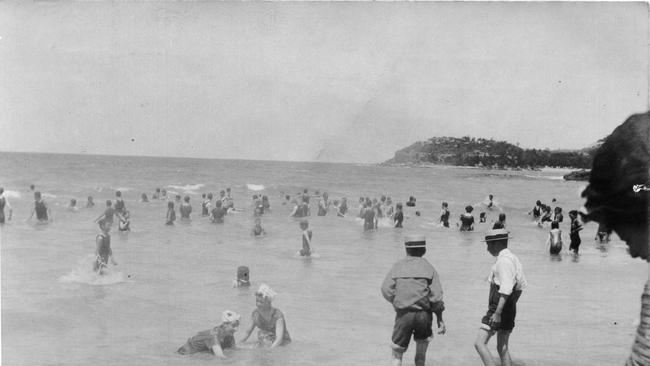
The only difference between Gocher and the others was that Gocher had a newspaper in which he could blow his own trumpet.
And eventually Manly Council decided to join the 20th century.
At its meeting on November 2, 1903, Manly Council voted to overturn its previous ban on daylight bathing – 13 months after Randwick Council had voted to so – and the change was published in the Government Gazette on December 11, 1903.
Gocher’s newspaper eventually folded and his profile was lowered, although he continued to support issues concerning surf bathing and was one of about 40 vice-presidents elected to office when the Manly Surf Club was formed in 1907 (not to be confused with Manly Life Saving Club, which was formed in 1911).
But in 1907 a journalist with the Daily Telegraph, possibly a friend, decided that Gocher was a hero.
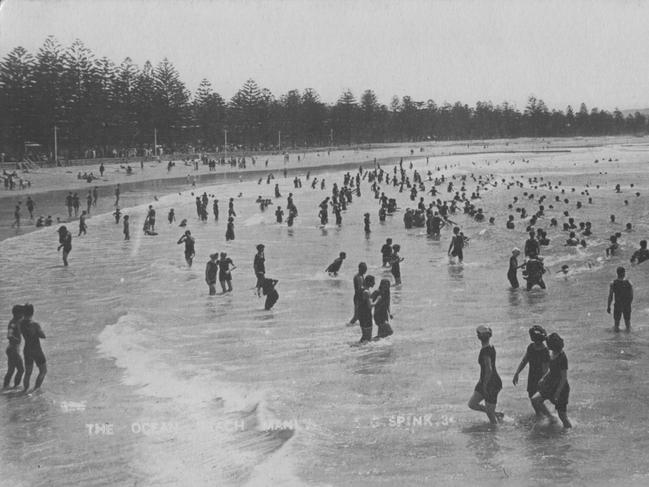
In a story called “All Day Bathing – How it was Won for Manly,” the journalist castigated the people of Manly for failing to recognise the hero in their midst.
Shortly afterwards, another friend of Gocher’s, Manly Surf Club co-founder Frank Donovan, announced he was launching an appeal to demonstrate Manly’s appreciation for Gocher’s efforts.
The result of the appeal was 50 sovereigns and a watch, on the back of which was engraved: “Presented to W.H. Gocher Esq, the pioneer of all-day surf bathing, by his Manly friends.”
From that Daily Telegraph story, the myth of Gocher’s efforts to change the laws on daylight bathing grew by the year, until eventually Gocher was being lauded as the hero who had single-handedly changed the face of Australian beach culture.
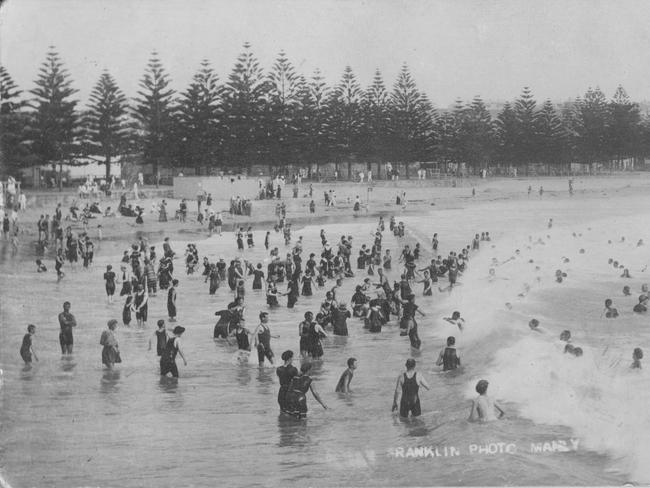
Unfortunately myths have an insidious habit of taking over from the truth.
There was no single hero behind the birth of daylight bathing – neither William Gocher nor any other individual – just hundreds of ordinary people who wanted to enjoy the pleasures of the sea and weren’t overly concerned about the niceties of the law, including many who lived at Randwick.
But neither Randwick nor Manly Council should be championed for overturning their bans on daylight bathing – Newcastle Council took that step in August 1894 – nearly eight years before Randwick Council and more than nine years before Manly Council.
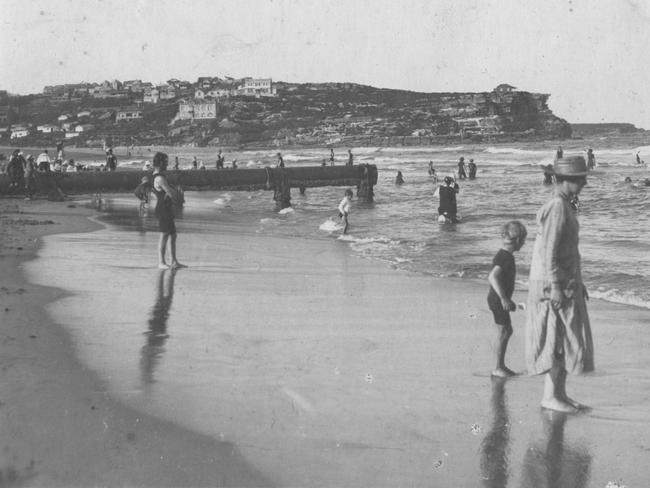
Newcastle Council’s decision was announced in the Government Gazette on August 23, 1894.
So, in the race to overturn bans on daylight bathing, it was Newcastle in first place, Randwick in second and Manly in third.
Manly’s only consolation was that it at least beat its perennial rival – Bondi: Waverley Council didn’t overturn its ban on daylight bathing until January 1906.


